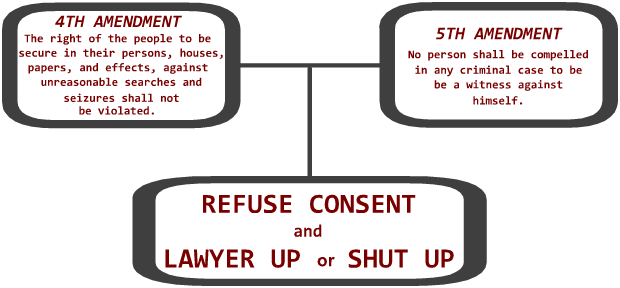




The information on this site is not offered as legal advice. To be effective, legal advice must be tailored to the needs of individual clients and cases. If you are interested in a competent opinion about how some of the information on this site applies to a situation in your life, you should make an appointment to see Brandon Crawford. You can make an appointment by calling 855-CRAWFORD or emailing Brandon at brandon@crawfordlaw.net.
In the investigatory stage of a criminal case (before the case percolates into the courthouse), two constitutional provisions are of paramount importance because they restrain law enforcement's ability to deprive you of your freedom and intrude into your private affairs and thoughts: the Fourth Amendment and the Fifth Amendment. No need to run off to Google though, here’s a crash course on the options and protections afforded by them:

So long as the arresting officer is instructed to make the arrest by another officer or police agency that collectively possesses knowledge sufficient to constitute reasonable cause, an arresting officer need not personally have the information that provides reasonable cause for the arrest.